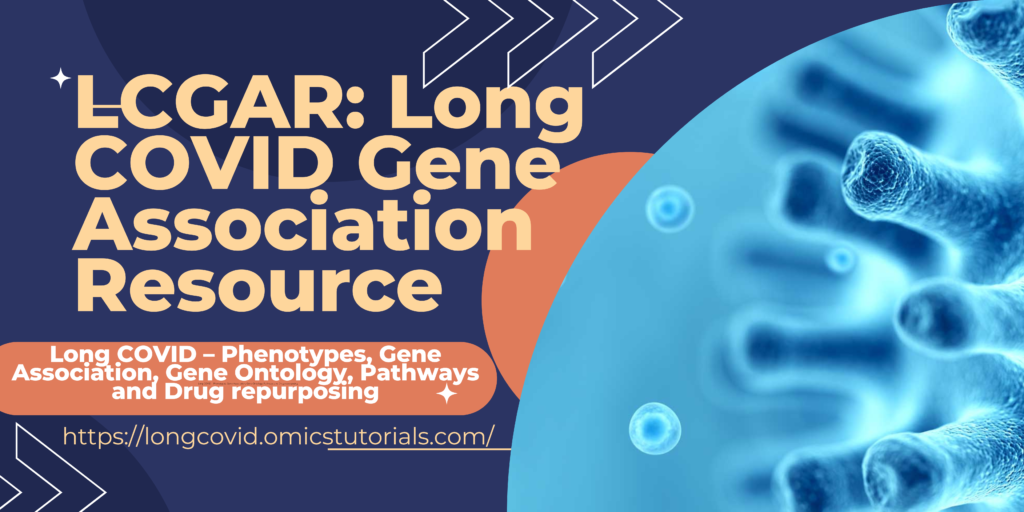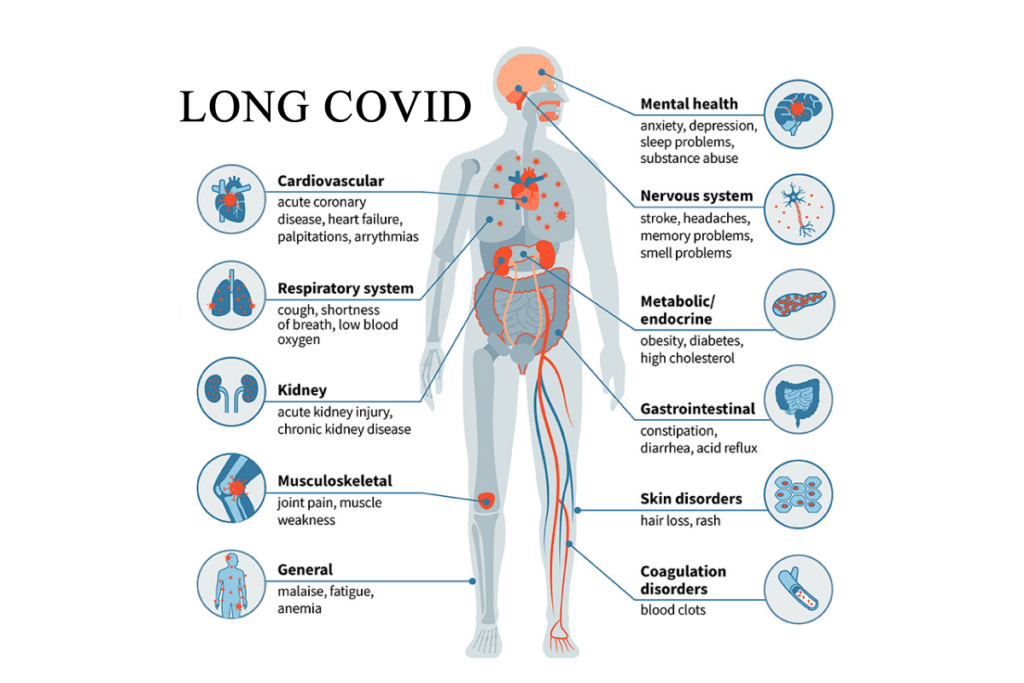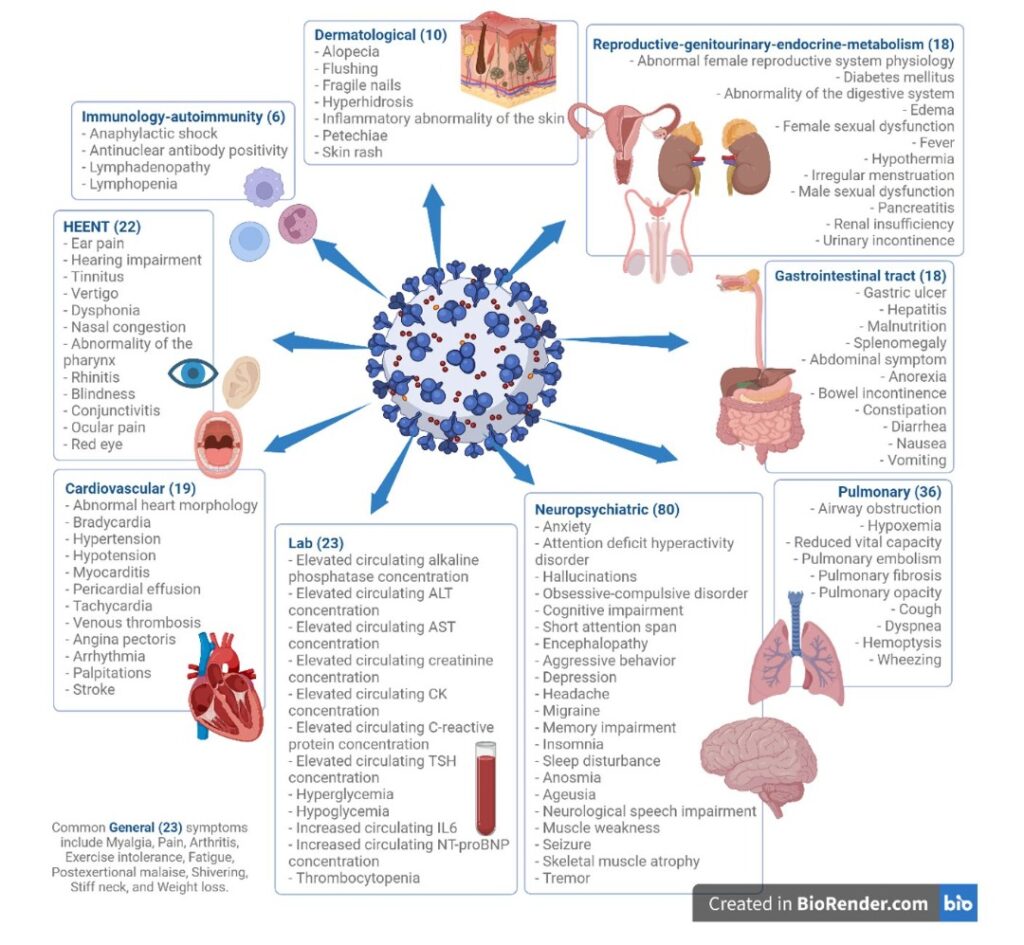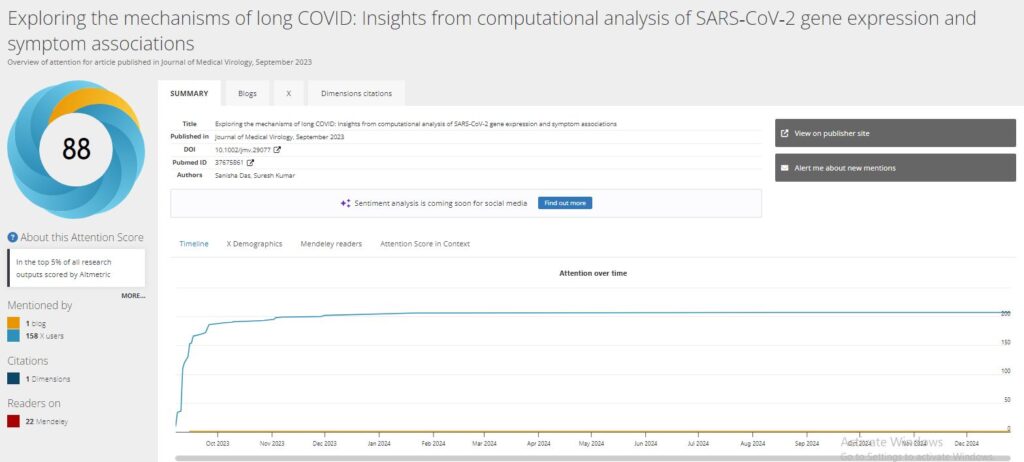

The term “post COVID-19 condition,” also known as “long COVID,” refers to a collection of long-term symptoms that some people experience following COVID-19. Individuals suffering from post-COVID-19 symptoms occasionally refer to themselves as “long-haulers.” Although the majority of people who contract COVID-19 recover within weeks of infection, some develop post-COVID complications. Post-COVID conditions encompass a broad range of new, recurrent, or persistent health problems that individuals may experience four or more weeks after contracting the virus that causes COVID-19. Even individuals who did not exhibit COVID-19 symptoms in the days or weeks following infection can develop post-COVID complications. These conditions can manifest as a variety of different types and combinations of health problems over a range of time periods.
These post-COVID conditions are also referred to as Post-acute Sequelae of COVID-19 (PASC), long COVID, long-haul COVID, post-acute COVID-19, long-term COVID effects, and chronic COVID. Certain individuals develop a variety of new or persistent symptoms weeks or months after contracting the virus that causes COVID-19. Unlike some other post-COVID conditions, which tend to affect only those who have had a severe illness, these symptoms can affect anyone who has had COVID-19, regardless of how mild the illness was or whether they had no initial symptoms.

Additionally, some individuals experience psychological effects as a result of the post-COVID-19 condition. These symptoms may last longer than their original illness, or they may show up after they get better. They may appear and disappear or relapse over time. A post-COVID-19 condition may have an impact on a person’s capacity to carry out daily tasks like work or household chores.
How to cite this article: Das S, Kumar S. Exploring the mechanisms of long COVID: insights from computational analysis of SARS‐CoV‐2 gene expression and symptom associations. J Med Virol. 2023;95:e29077. doi:10.1002/jmv.29077
Our Publication got more views and social media attention


| MOST COMMON SYMPTOMS OF LONG COVID |
| · Fatigue · Shortness of breath · Loss of smell · Muscle pain · Headache · Brain fog · Chest pain · Difficulty sleeping · Heart palpitations · Dizziness · Join pain · Depression · Anxiety · Tinnitus · Diarrhea · Loss of appetite · Skin rash |
| LONG COVID IN CHILDREN / LONG COVID KIDS |
| Long COVID or persistent symptoms after a COVID-19 infection affect children. According to studies, children with chronic COVID report a variety of symptoms, including fatigue, headaches, dizziness, chest discomfort, changes in taste and smell, a diminished appetite, concentration and memory difficulties, mental and physical exhaustion, and sleep problems. These symptoms were shown to be 2–36 times more prevalent in 15–19-year-olds with protracted COVID compared to age-matched controls. Other studies have found that infants born to mothers with COVID-19 have an increased risk of liver injury, acute pulmonary embolism, myocarditis and cardiomyopathy, venous thromboembolic events, acute and unspecified renal failure, type 1 diabetes, and neurodevelopmental disorders in children with long COVID. However, additional research is required because it is difficult to establish an appropriate control group due to testing challenges and the fact that children are less likely to obtain positive PCR test results or to seroconvert. |
| LONG COVID AND ME/CFS OVERLAPPING COMMON SYMPTOMS |
| Myalgic encephalomyelitis/chronic fatigue syndrome (ME/CFS) is a disabling and complex illness. Long COVID has a significant overlap in the symptoms to ME/CFS, including fatigue, unrefreshing sleep, and “post-exertional malaise”—a general sense of being unwell after even minor physical or cognitive exertion affecting the majority of those with long COVID, as well as high rates of memory and attention problems like “brain fog”. It’s worth noting that the symptoms and severity of ME/CFS and Long COVID can vary greatly from person to person and may change over time. However, the exact relationship between COVID-19 and ME/CFS is still not clear and more research is needed to understand this connection. · Postexertional malaise · Brain Fog · Pain · Sleep disturbance · Heart palpitations · Chest pain · Senstivity to light · Senstivity to sound |
| LONG COVID AND POTS OVERLAPPING COMMON SYMPTOMS |
| Postural Orthostatic Tachycardia Syndrome (POTS) is a type of dysautonomia, which is a disorder of the autonomic nervous system. POTS is characterized by an excessive increase in heart rate upon standing up, which can cause symptoms such as lightheadedness, fainting, and rapid heartbeat. Other symptoms may include fatigue, headaches, abdominal pain, and tremulousness. POTS is often seen in people with Myalgic Encephalomyelitis/Chronic Fatigue Syndrome (ME/CFS), but can also occur in people without ME/CFS. The exact cause of POTS is not yet known, but it is believed to be related to problems with blood flow regulation. It’s important to note that not everyone with Long COVID will develop POTS, and not everyone with POTS will have had COVID-19. The severity and duration of symptoms can vary greatly from person to person. Additionally, other conditions, such as ME/CFS, can also cause similar symptoms. · Fatigue · Heart palpitations · Lightheadednes and fainting · Headaches · Abdominal pain · Sleep disturbances · Anxiety · Depression |
From peer-reviewed, published articles, we have collected about 255 reported symptoms. We classified all symptoms into ten categories based on the organ system phenotypes with which they are associated. This website contains information of key genes related to individual reported symptoms, gene ontology, pathways, and repurposed FDA drugs.
Disclaimer: The information provided on this website regarding FDA repurposed drugs is intended for research use only and is not intended for public use. The drugs discussed on this website have not been approved by the FDA for use in the general population and their safety and efficacy have not been established for any specific indication. Any use of these drugs outside of a research setting is not recommended and is strictly prohibited. The information provided on this website is not intended as a substitute for medical advice, diagnosis, or treatment and should not be used for making any decisions regarding your health. Always consult a healthcare professional before taking any new medications or making any changes to your current treatment plan


